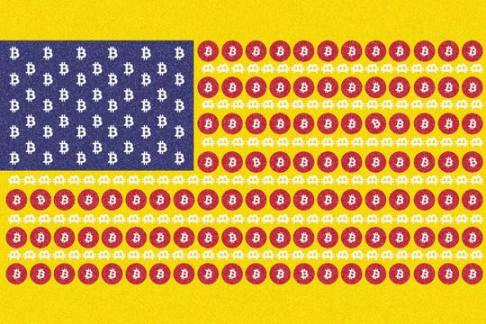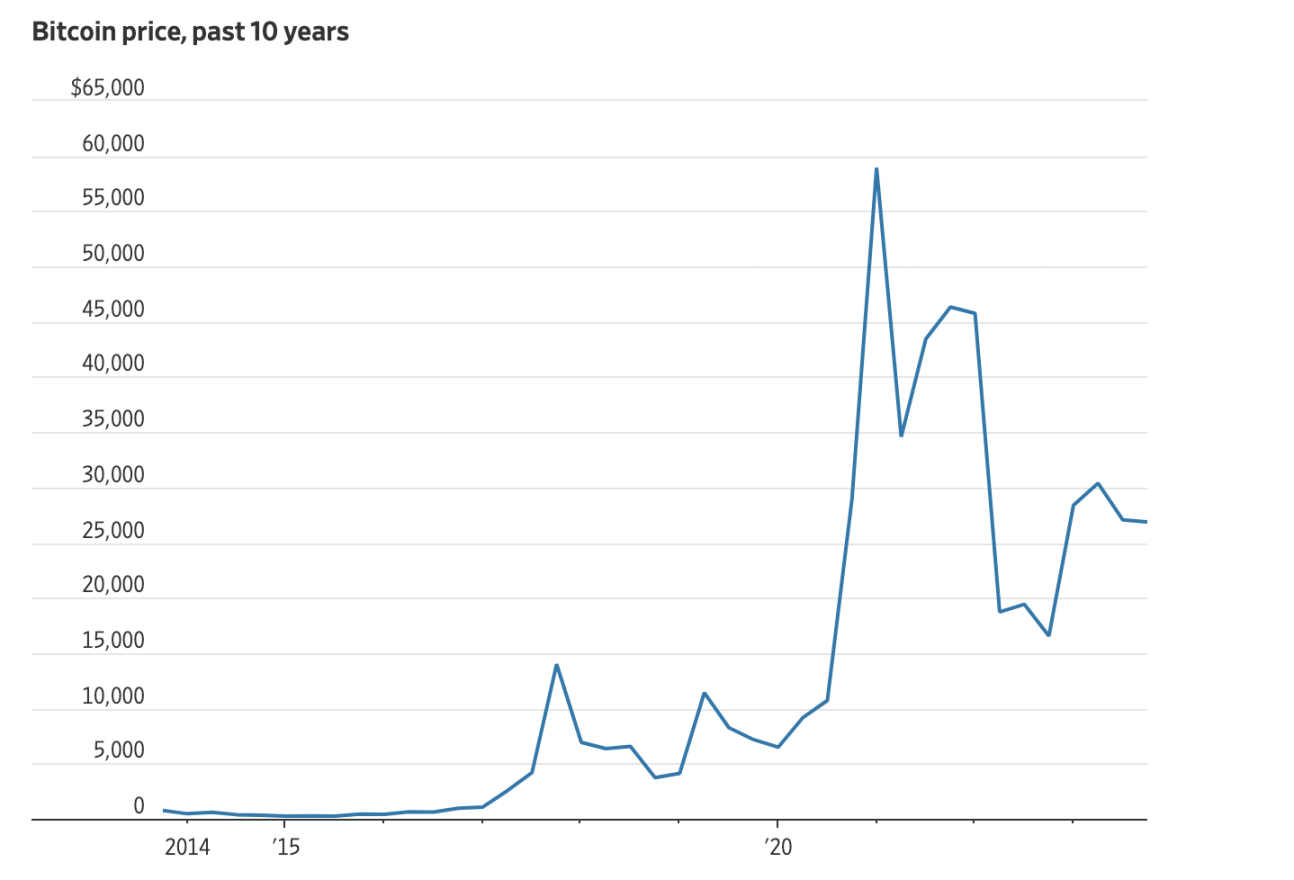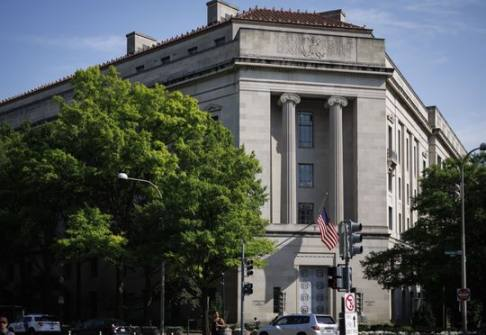Written by: Vicky Ge Huang
Translated by: Luffy, ForesightNews
The U.S. government is one of the world's largest holders of Bitcoin, but unlike other cryptocurrency whales, it is not concerned with the price fluctuations of cryptocurrencies.

This is because Uncle Sam (a nickname and personified image of the United States) seized about 200,000 bitcoins from cybercriminals and dark web markets. It is primarily stored offline in encrypted storage devices (known as hardware wallets) controlled by the Department of Justice, the Internal Revenue Service, or other agencies.
How the federal government handles Bitcoin has long been of interest to cryptocurrency traders, as any selling activity could affect the price of Bitcoin and have implications for the $1 trillion cryptocurrency market.

Source: CoinDesk
The U.S. government's pace of converting its held Bitcoin into dollars has been notoriously slow. It is not "HODLing," nor is it waiting for Bitcoin "to the moon" in order to make massive profits by selling its holdings. Instead, this massive amount of Bitcoin is more of a byproduct of lengthy legal processes rather than strategic planning.
"We deliberately do not participate in the market, and we basically determine the sales plan based on the timing of the process," said Jarod Koopman, executive director of the Cyber and Forensic Services division at the Internal Revenue Service, which oversees all activities related to cybercrime.
According to an analysis of public documents by cryptocurrency company 21.co, just the recent three seizure events have brought in over 200,000 bitcoins to the government's coffers. The analysis shows that even after selling about 20,000 bitcoins, the value of the U.S. government's holdings still exceeds $5 billion, and the total reserve size of the government may be much larger.
The legal process from seizing illegal bitcoins to receiving the final order to liquidate them into cash could take several years. In some cases, this works in favor of the government, as the value of the cryptocurrency appreciates significantly.
For example, in 2016, when the cryptocurrency exchange Bitfinex was attacked by Ilya Lichtenstein, the market price of Bitcoin was around $600. By the time Lichtenstein and his wife Heather Morgan were arrested in 2022 (the Department of Justice seized 95,000 bitcoins in that case), the price of Bitcoin had risen to $44,000. Now, it hovers around $27,000.

Heather Morgan's arrest
In the high-profile collapse of the FTX exchange last year, the U.S. government did not seize any cryptocurrency, but it took over hundreds of millions of dollars in assets, most of which were cash and Robinhood stocks. Robinhood repurchased the seized stocks from the U.S. Marshals Service in August. The cryptocurrency assets of FTX are part of its bankruptcy estate, and the company is expected to use these funds to help fill an $8 billion shortfall in customer funds or to relaunch the exchange.
When government agencies control cryptocurrency assets, Uncle Sam does not immediately own the assets. Only after a court issues a final forfeiture order does the government take ownership and transfer the tokens to the U.S. Marshals Service, the primary agency responsible for liquidating seized assets.
During the pending case, the government holds Bitcoin as evidence of the crime. Since the closure of the online drug market Silk Road in 2013, the Department of Justice has stored seized bitcoins in hardware wallets. In recent years, the agency seized 69,000 bitcoins that once belonged to Silk Road founder Ross Ulbricht and 50,676 bitcoins from a Georgia man who admitted to stealing assets from Silk Road.
Nicolas Christin, a computer science professor at Carnegie Mellon University, said, "The government's actions in handling these assets are often very slow because they have to conduct a lot of due diligence, the cases are often complex, and there are many formalities."
The liquidation process of the Marshals Service has also evolved with the development of the cryptocurrency industry. In the early days of the industry, the agency directly sold cryptocurrency to interested buyers through auctions, many of whom made substantial profits.

The Department of Justice has always stored seized bitcoins in hardware wallets
Venture capitalist Tim Draper made a fortune by investing in cryptocurrencies. In 2014, he purchased over 30,000 bitcoins from the government through two auctions. In one auction, he bought bitcoins at a price of $632 when the market price was $618. After Bitcoin dropped to around $180, he bought them at a price of $191 per bitcoin in another auction. The cryptocurrency division of high-frequency trading firm DRW, Cumberland, bought 27,000 bitcoins in an auction that same year.
In January 2021, the Marshals Service decided to liquidate a portion of its cryptocurrency inventory on a cryptocurrency exchange for the first time. Historically, it has sold cryptocurrency in batches rather than all at once to avoid adverse effects on the market. According to current practices, the agency has taken additional measures to avoid adverse effects on the market, including extending the liquidation period.
In March, such a liquidation occurred when the government sold 9,861 bitcoins through Coinbase. The Marshals Service confirmed the transaction.
A representative of the agency said, "Our goal is to dispose of assets in a timely manner at fair market value."
In many cases, the proceeds from government sales are used to compensate victims. In July, Bitfinex stated that it received over $300,000 in cash and 6,917 Bitcoin Cash (BCH) from the Department of Homeland Security, valued at approximately $1,900. Government agencies investigating increasingly complex criminal activities can also seek assistance to pay for expenses such as cryptocurrency tracking software license fees.
"It's hard for us to adapt quickly," said Koopman of the Internal Revenue Service. "What has happened in the cryptocurrency field in less than 10 years is almost equivalent to what has happened in the financial industry in 100 years."
免责声明:本文章仅代表作者个人观点,不代表本平台的立场和观点。本文章仅供信息分享,不构成对任何人的任何投资建议。用户与作者之间的任何争议,与本平台无关。如网页中刊载的文章或图片涉及侵权,请提供相关的权利证明和身份证明发送邮件到support@aicoin.com,本平台相关工作人员将会进行核查。




